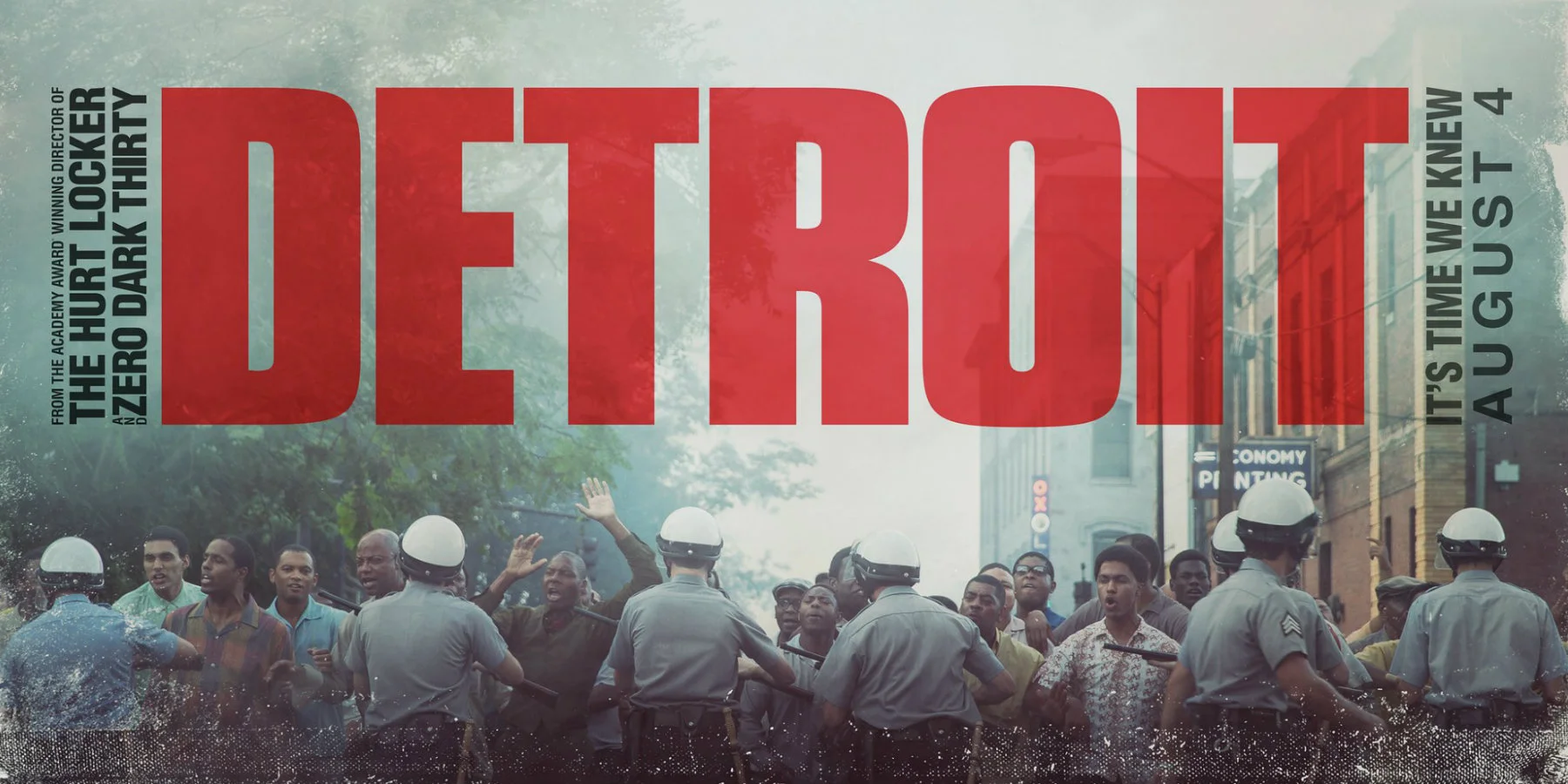A Terrifying Reality: 'Detroit' Film Review
by Will Lindus
It should really come as no surprise that much of the conversation regarding Detroit is couched in its social relevance. Detailing the horrific and tragic events that occurred at the Algiers Motel on July 25-26th, 1967 during the 12th Street Riot, Detroit paints a grim picture of the deadly consequences of unchecked authority in racially charged situations. The film begs exactly that question: what happens when a trio of racist cops are given carte blanche to hold hostage, terrorize, and even murder a group of black men on what can best be described as flimsy evidence? And what happens when the entire system is designed so that such occurrences are not surprising, and are instead inevitable?
This isn’t a fictional tale. This massacre actually happened, and while some of the details were fictionalized for the sake of storytelling, the outcome remains the same: men who should not have been killed, were. Also not fiction is the mirror reflection of these events we see unfolding around us and in the news each day. Even in 2017, almost 50 years later to the day of the Algiers Motel Massacre, we continue to hear stories of needlessly escalated violence on behalf of law enforcement targeted towards minority groups. For this reason, Detroit is assuredly an important film, one that serves to educate on a dark moment in our history while reminding us that we still have much, much work to do.
The shame here is that Detroit, as both a narrative vehicle and as a technical work, lacks some of the refinement that I would expect to accompany such an important subject. Don’t get me wrong; director Kathryn Bigelow (The Hurt Locker, Zero Dark Thirty) has a true talent for telling specifically this type of story. She understands how to blend high stakes with character balance, how to provide tension while also providing payoff. Detroit is a good film. It just isn’t a great film because it get the balance of its ingredients wrong.
The first part of the film opens strong enough. An animated sequence sets the tone for the racial tensions which erupted during the 12st Street Riot, which helps set the stage for the events to follow. We’re also introduced to our characters, all incredibly well cast and well acted, all on a collision course with one another. John Boyega is Melvin Dismukes, a security guard who becomes the moral center of the story, caught between opposing sides. Larry Reed (Algee Smith) and Fred Temple (Jacob Latimer) are a pair of up-and-coming doo-wop musicians who bunker down at the Algiers one night to avoid the bedlam occurring on the street. Officer Krauss (Will Poulter) is a racist police officer with a history of violence who enacts cruel and inhumane punishments with almost a sadistic glee. As the characters all make their way to the Algiers Motel, it feels like the opening to a horror film. You want to scream ‘turn back!!!’ at the screen because you know what’s about to come won’t be good for anyone involved.
The next 40 minutes of the film plays through the incident at the Algiers Motel itself with tension pulled so taut as to be almost suffocating at times. Bigelow keeps the camera on the action during this entire scene, with no cutaways to reduce tension. The setting for the scene, mostly a small hallway and the adjacent rooms, helps reinforce the feeling of claustrophobia, of there being no escape for the participants in the brutal physical and mental torture they endure. This sequence is a masterpiece of filmmaking, transcending time and space to make us feel both present in this tragic moment in our history while acutely aware that such events are still happening today.
Following this sequence is where the film makes a rather substantial misstep. There’s this philosophy when it comes to stories based on real events that says that you need to include as many of the before, during, and after details as possible. Detroit follows this same approach, closing the film with 25 minutes of aftermath. Some of this information is important, sure, and some of it is even downright beautifully shot and executed. I simply don’t think this film needs this much closure, and in fact, I think tying up these loose ends hurts the film’s message of modern relevance. The scene at the Algiers Motel is so gripping that it communicates a lot through the visceral experience it provides, but this tension is deflated and rendered less effective through the amount of time the film takes wrapping things up. If this scene were 2-3 minutes at most instead, it would have been much more effective, and created a much more lingering impression.
Bottom Line: Detroit is the rare type of movie that works both as an entertainment product and as a reflection of social inequity. When it is at its best, it places you uncomfortably close to a terrifying situation, one that will leave you angry and wondering how such a thing could - and continues to - happen. Despite some editing and runtime issues towards the end of the film, Detroit remains a solid film, one that is as engaging as it is important.
3.5 out of 5 Bear Paws


